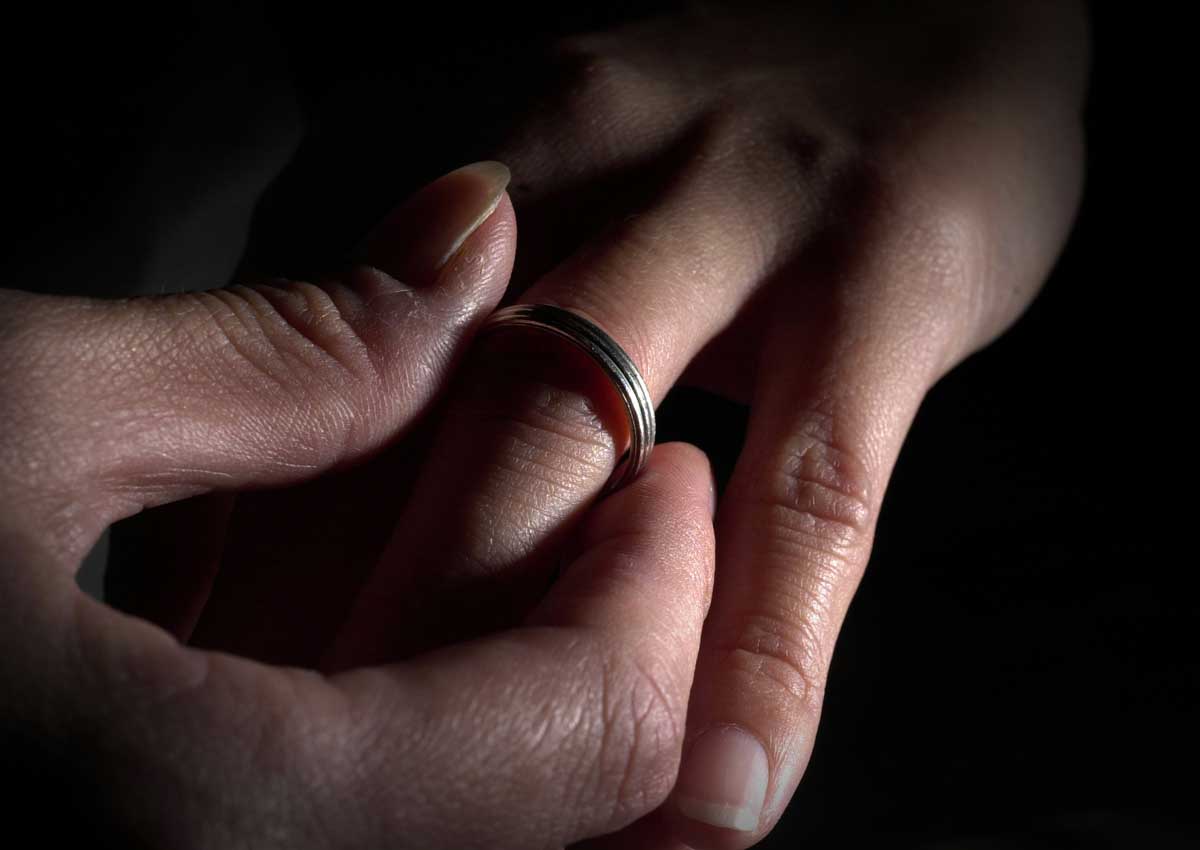What it takes to be... A divorce lawyer in Singapore

 PUBLISHED ONJuly 26, 2019 5:38 AMBYCandice Cai
PUBLISHED ONJuly 26, 2019 5:38 AMBYCandice CaiConcealed weapons. Armed confrontation.
They're not tropes of a gangland movie, but what Jenny Lai has had to deal with in her 25 years of practice as a lawyer — divorce lawyer, to be exact.
Within the confines of a sterile office, it's hard to imagine such high drama taking place, but perhaps it comes with the territory.
In a job where people's feelings are at stake and emotions run high, things can get ugly.
Jenny, who specialises in family and conveyancing law, sees about 10 to 15 cases a month. According to her, there's been more than 2,500 divorce cases this year in Singapore till date. "It's quite a lot," she says.
Couples in Singapore can get divorced if they've been married for at least three years.
She explains: "There's only one ground for divorce, that your marriage has broken down irretrievably. But there are five facts, and you choose one."
For the curious, these are the facts:
And with technology, getting legally separated is now easier. In fact, one can even DIY "if you're confident enough" of navigating the paperwork, says Jenny. "The forms are all on the website (of the family justice courts)".
We speak to the 50-year-old legal professional to gain some insight on what it takes to be a divorce lawyer in Singapore, besides the usual paper qualifications.
STAYING CALM AMIDST THE STORM

It may be stating the obvious, but lawyers need to have a level head on their shoulders.
Recounted Jenny: "In my early years, there was a client who asked me, how can you be so emotionless in front of me when I'm sobbing away, and I'm so torn by this divorce.
"So I told her, if I were to start feeling the way you are - so sobby, so disoriented, I will not be able to execute your work effectively and efficiently.
"I think as responsible lawyers, and as responsible divorce lawyers, one should always distance themselves and keep calm."
She has not lost her cool yet on a divorce case, she says, but she's come close.
It was at her own client, whom she admitted was being unreasonable, and only "out to squeeze her husband of every cent". "I didn't raise my voice with her, but I was very firm and adamant," said Jenny of the case.
Has she always been able to be so emotionally distant?
She lets on that she's been asked whether her professional demeanour carries over into her personal life.
Tellingly, Jenny says: "Sometimes, my husband tells me that I'm very cold."
NERVES OF STEEL

Jenny has come face-to-face with secret society members wielding weapons in her office, although not all hostile cases stem from divorce.
But she's also had to face threats from clients and their spouses as well, who threaten her with bodily harm.
"There was once I made a (police) report, because a client (who refused to pay his legal fees) wanted to set fire on me, he said. His exact words."
He was let off with a stern warning after police investigated.
She added: "I always tell (those who get aggressive), I'm not the third party, I didn't break up your marriage. When your wife or husband came to see me, the marriage was already broken.
"I'm just there to help you all close it up, smoothly, quickly and with less pain to both parties. So they change their tone," she shared.
Her husband, who became a little wary after her run-in with the gangsters, "started to put soft weapons around the office" - not that she's ever needed them.
Jenny recounted a serious altercation several years ago involving a lawyer from a neighbouring law firm.
"He represented the wife and got hit by the husband on the eye (outside the office).
"He had to get a corneal transplant as a result and stopped going to court because his vision didn't really recover."
Jenny added: "We are in a very precarious position, I must say, for divorce lawyers."
But it'll take more than bullies and threats to keep her from doing her job.
Said Jenny: "It's a challenging profession and I enjoy the challenge.
"It is a satisfying job because you help your clients to settle their problems."
The only thing which would make her quit, would be "if my health or mind does not permit it".
PATIENCE IS KEY

When asked what an important trait to effectively accomplish what she does is, she says patience is key.
Not least because of demanding clients, who "need you to update them all the time". And she makes sure to keep them informed of every development.
Patience comes in also because not only are they dealing with people, "you're handling people's problems and shouldering them".
And with that, the days are long and nights often fraught with worry.
"I actually do wake up in the middle of the night thinking 'have I done this, have I done that', 'is this a better way for my client'.
"The job doesn't really leave you."
Not surprisingly, it was her patience that led her on the path to becoming a lawyer in the first place.
After her A levels, Jenny was struck with single-minded determination to study overseas, just like her classmate — who happened to be former Prime Minister Goh Chok Tong's daughter.
"She was going abroad, so I told my father, I'd like to go abroad too, because I think it's something good. If it's something good for her I think it's something good for me," she recounted simply.
The British pound then was four to five times the Singapore currency. "It was a lot of money," said Jenny.
Another issue? The university term was starting and everyone had already submitted their applications.
The National Junior College alum then attended a university fair, patiently waiting her turn for a professor to speak with her.
"I waited for him to finish with everyone before I asked my questions, simply because I thought mine would be a very complex case. So I stood there for a very long time."
Struck by her tenacity, when it eventually came to her turn, the professor told her: "Because you're very patient, let me make a call back to London tonight and ask can they take you in for first year".
And they did. Within a few months, she was in England.
Her first few days there were spent sightseeing with a group that included local thespian Adrian Pang, who was also a freshman at Keele University.
Because it was her "virgin trip" to a new country, her parents did not allow her to make the trip up alone, "so I asked them if I could tag along".
"I was the typical country bumpkin. At 18, what do I know, I didn't know anything."
But it was in England, staying on campus, that Jenny said she brushed up on her English, which she admitted was "not very good" at the time.
Following her professor's observation that most foreign students read Law and Economics "because they were moneymaking", Jenny did the same, eventually graduating with a double major.
Within two years of becoming a lawyer, Jenny set up her own practice.
But her journey to professional success is tinged with some regret.
"My father had to raise the money (for me to go to law school).
"It was difficult, because he had four children. After raising his children he got cancer and passed on. I think he was too stressed out.
"It's something I cannot forgive myself for. I can afford the best for him now but he's not around," says Jenny, her cool exterior cracking for the first time during our interview.
NO ONE KNOWS WHAT GOES ON IN A MARRIAGE

Despite the ease of divorce, Jenny believes the D-word shouldn't be seen as the easy way out.
"I think as a responsible lawyer, if you feel that the marriage hasn't truly ended, and there's a hope of reconciliation, you always advise your clients on the availability of counselling and mediation and see if they can try to patch things up," says Jenny.
But that belief once backfired on her.
ALSO READ: 8 things women need to know before getting a divorce
Jenny found out that a potential client had sought alternative legal advice because she couldn't understand why she kept urging her to go for counselling.
One thing she's convinced about though, is that a divorce is only between two parties and no one else.
"No third party should ever tell another party that they should go for a divorce, not even a lawyer, because they don't really know what happens (in a marriage)."
candicecai@asiaone.com